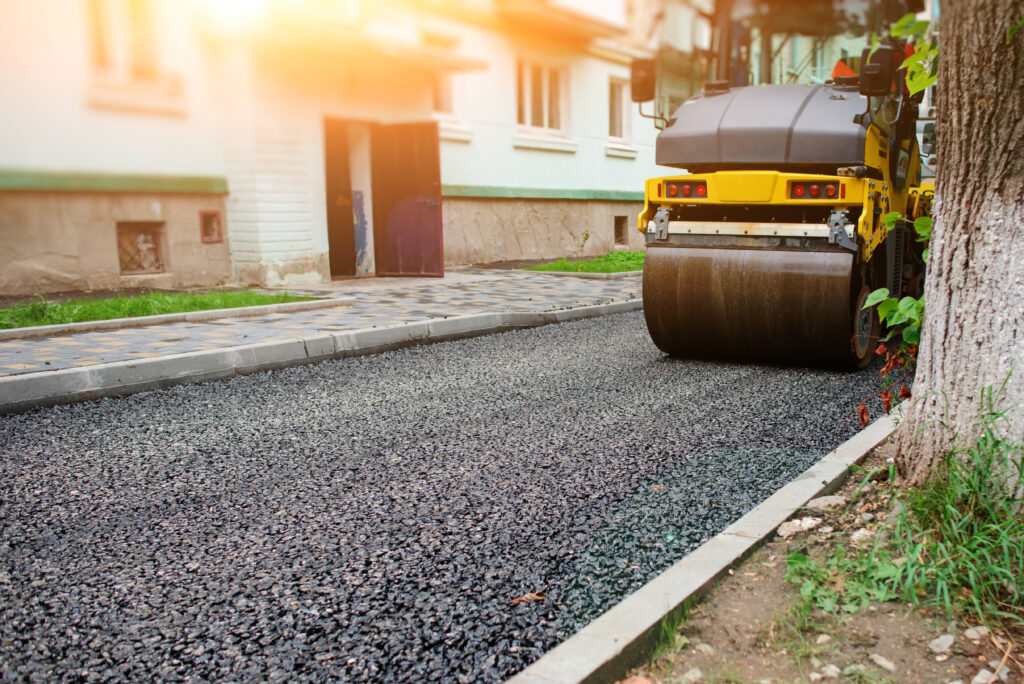When you think of plumbing, you probably envision your sinks, toilets, and showers. But plumbing is much more than just these fixtures. It includes a series of pipes that bring water into your home and carry waste away.

These systems must be properly maintained to ensure that they work as intended. Plumbers are responsible for installing, repairing, and maintaining these systems. Contact Joe’s Plumbing for professional help.
A leaking faucet can be a serious inconvenience. Not only does it waste water, but it can also cause rust and corrosion in the pipes. In addition, a constant drip can create water spots on surfaces and lead to mold growth. It’s best to fix a leaky faucet as soon as you notice it so that the problem doesn’t get worse. A professional plumber can provide a quick and easy repair, but homeowners can also do some simple troubleshooting to find out what’s wrong with their faucets.
Start by turning off the water supply to your sink. Then, remove the faucet handle. You may need to pry off the decorative cap or use a screwdriver. Once the handle is removed, you can replace the washer or O-ring to stop the leak. You should also make sure that the new parts are an exact match to avoid future problems. Once you’re finished reassembling the faucet, turn the water back on to test it.
If your leaky faucet still isn’t fixed, it may be a sign of larger plumbing issues. These can include corrosion within the pipes, faulty valves, or even just high water pressure. These problems may be more difficult to identify, but they can lead to expensive repairs and water wastage.
A leaky faucet can also damage your floors, drywall, and cabinetry. This can result in water damage, wood rot, and mold growth. In addition, it can increase your water bill by wasting thousands of gallons of water per year.
To save money, you can try to repair your leaky faucet yourself. However, if the problem persists, it is a good idea to call a professional plumber. Plumbers are able to fix most leaky faucets and can help you save money on your utility bills.
Leaky faucets are a common problem, but they can be easily repaired with some basic tools and supplies. It is important to keep in mind that leaky faucets can cause costly damage if not addressed quickly. It’s also a good idea to have your home inspected by a plumber regularly to catch potential problems before they become serious.
Repairing a dripping faucet
A dripping faucet is not only an annoying nuisance, but it can also lead to costly water bills and damage your home’s fixtures. The first step to fixing a leaking faucet is to turn off the water supply and drain the sink. If you’re unsure how to do this, contact a plumbing professional. They can help you identify the problem and repair it quickly and safely.
If your leak is from the spout, you may need to replace the valve seat or washer. These parts can wear out over time, causing leaks and allowing water to seep through the faucet. If you’re replacing the washer, make sure to use a new O-ring and neoprene seal. If you don’t, the washer will likely leak again.
Often, the cause of a leak is not in the faucet itself but in your home’s plumbing system. If you have high water pressure, it can cause the valve seat to corrode and wear out over time. This can then lead to other problems, like pinhole leaks that slowly eat away at your pipes. A professional plumber can evaluate your water pressure and recommend the proper solution.
Before you start repairing your dripping faucet, it’s important to know the different types of faucets. There are four common types: cartridge, compression, ceramic disk, and ball faucets. Each one requires a slightly different approach to disassemble and repair. Before you begin, it’s best to turn off the water supply and remove the handle to ensure no water gets inside the pipes while you’re working. You should also plug the drain with a rag or other object to prevent old and new parts from falling down the drain.
Once you’ve removed the handle, take a look at the valve seat and the O-ring to see if they need to be replaced. Then, you’ll need to remove the stem and packing nut. Be sure to place each part in order as you remove them, so you can easily put them back in the correct order when you reassemble your faucet.
After you’ve replaced the worn parts, it’s a good idea to clean them with white vinegar. This will help remove any mineral buildup, which can cause a drip or slow water flow.
Repairing a leaking handle
A leaking faucet handle can waste water and money, and it may indicate the presence of a hidden leak in the spigot or pipes. A professional plumber can identify the source of the problem and repair it. Leaking handles can also cause mold and mildew problems, since the leaks allow moisture to seep into wood, drywall or insulation. To fix this issue, remove the handle and pry out or soak the seals (for a ball type), then replace them with new ones coated in non-toxic, heat-resistant plumber’s grease.





